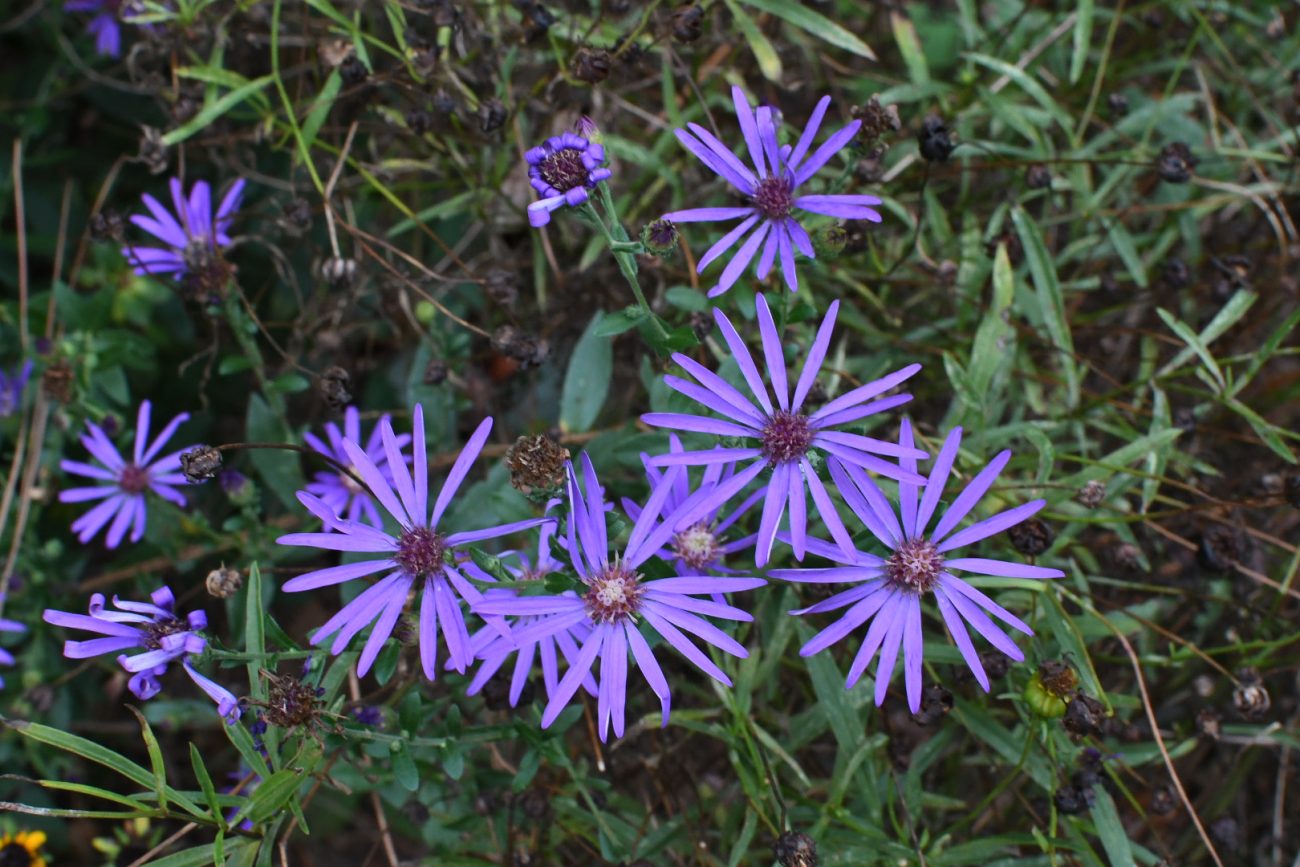A wildscape is simply a landscape designed to provide habitat for wildlife from bees and butterflies to birds and beyond, supporting a healthy community based on natural relationships. The principles of wildscaping can be applied to landscapes large and small – from parks or farms to an individual yard or an entire community. In fact, individual residential landscapes are an important opportunity to re-establish and protect the natural ecosystem with native plants and flowers. Brightwater’s newest Net Zero community, Aster in Roswell, GA (aptly named for the native Georgia Aster wildflower), will apply the principles of wildscaping to create a natural oasis for local wildlife and biodiversity.
Every decision made for a wildscape is intentional, from the choice of plants to use to their installation, arrangement and maintenance – all modeled after the natural, native ecosystem. The foundational principles of wildscaping include:
- Creating diverse layers and shelter
- Growing natural food
- Providing water for drinking and bathing
- Controlling invasive species
- Conserving water and energy and avoiding chemicals
In keeping with these principles, wildscaping concepts at Aster will employ a variety of techniques to create a naturally vibrant and healthy community for all of its residents to share.
Use Native Plants
Native plants are the key to a healthy wildscape. Insects and other wildlife cannot consume plants that they have not co-evolved with, meaning non-native plants are not viable food sources for them. Even worse, if a non-native plant is invasive and overcrowds native plants that are a natural part of the ecosystem, the result is even less available food for native insects and wildlife.
Plant with Intention
When creating a wildscape, it is important to incorporate a good variety of plants ensuring that there is something blooming in every season to provide for wildlife year-round. In addition to being aesthetically pleasing, a variety of shapes, colors and sizes incorporated into a wildscape also helps to support a wide variety of wildlife as not all see colors in the same way. Variety also ensures that wildlife are supported throughout their lifecycle. For example, supporting butterflies means providing not only nectar plants but also plants that the caterpillars can eat.
Additionally, planting clusters of species together – generally 3 to 5 plants of the same type – serves a critical biological function for insects that practice “flower constancy”, that is they feed on the nectar of a single plant species before moving on to the next. And layering tall structural plants with medium and low plants around them helps to create homes for wildlife.
Enjoy Thoughtful Low Maintenance
Carefully crafting a wildscape can actually make maintenance easier and less time consuming. Native plants are more likely to survive and thrive with minimal intervention as they are adapted to the natural water availability and native soil without fertilizers. Planting densely naturally suppresses the growth of weeds underneath. Wildscaping also means avoiding the use of chemical pesticides which make no distinction between good insects and bad, killing both equally.
Embrace Imperfection
The whole idea of wildscaping is to embrace and support the natural native ecosystem. So rather than meticulous trimming and mowing, a healthy wildscape calls for doing less to provide more for wildlife. That means not cutting back hollow stems in the winter which many bees use for nesting, not mowing over early spring flowers which may be the only available food source for wildlife coming out of hibernation or collecting fallen leaves to use as mulch which provides perfect natural cover for insects.
Wildscaping is just one more way that Brightwater is bringing to life its commitment to building healthier, more efficient new homes responsibly and with true respect for the environment. Interested in living brightly at Aster in Roswell, GA? Click here to learn more about this exciting new community.

